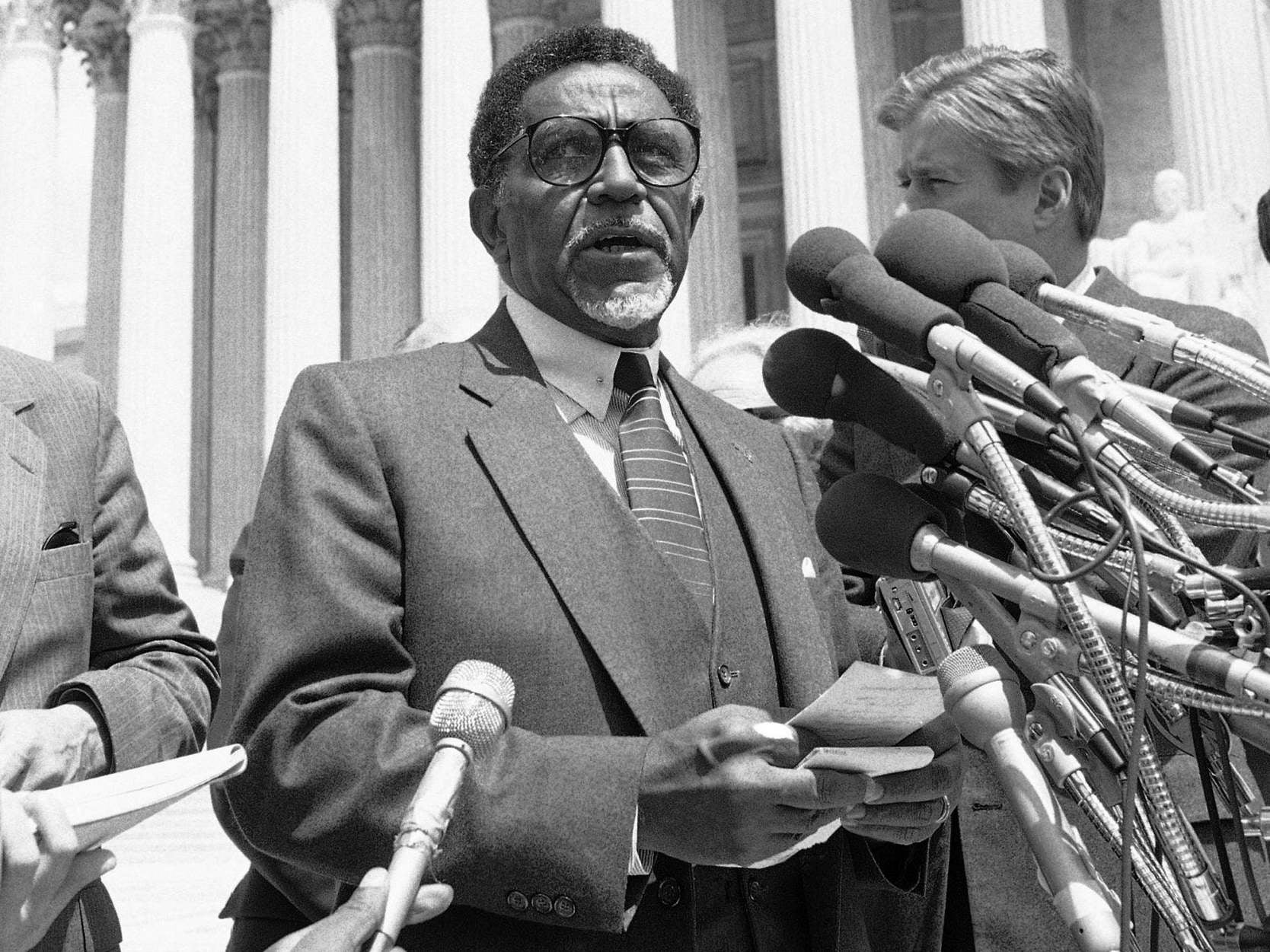Joseph Lowery: Civil rights leader and aide to Martin Luther King Jr
Co-founder and longtime president of the Southern Christian Leadership Conference, he was a key figure in nonviolent resistance in the American segregated south

Joseph Lowery, who has died aged 98, was a civil rights leader and was among the prominent ministers who founded the Southern Christian Leadership Conference with Martin Luther King Jr, later serving as the group’s president for 20 years.
Lowery’s civil rights work began in the late 1950s when he helped to start the SCLC, a nonviolent, civil disobedience organisation. He was a member of the SCLC board and travelled often to meet King and other leaders to help steer the organisation, providing advice and participating in protests at the height of racial unrest in the south.
One night in 1963, a last-minute decision to take a late-night train home to Nashville to see his wife saved Lowery’s life. The hotel room in Birmingham, Alabama, that King had offered him that night was bombed. No one was killed but Lowery later used that and other near-death experiences to describe himself and other participants in the civil rights movement as “a little crazy, good crazy” – willing to risk their lives to shake up the segregated south and usher in equal rights for blacks.
Lowery often worked in the background, behind King. In March 1965, he came to the fore as chair of the committee appointed to take protesters’ demands to George Wallace, segregationist governor of Alabama, at the end of the five-day, 54-mile “Bloody Sunday” march for voting rights from Selma to Montgomery.
Lowery described walking to the Alabama State Capitol steps and seeing a sea of blue-uniformed state troopers standing in front of the governor’s office. The National Guard was there too, authorised to protect Lowery. The guardsmen tramped in front of the state troopers and Lowery passed through. “Moses had the red sea, I had the blue sea,” he recalled.
Lowery’s stature and reputation grew as he outlived many other civil rights leaders. Following King’s assassination in 1968, the SCLC became rudderless and beset with infighting. By the time Lowery was elected SCLC president in 1977, the organisation was in debt and membership had fallen drastically.
Lowery raised money and returned the organisation to solvency, while focusing it on a new set of civil rights issues, such as US companies buying coal from South Africa and a spate of miscarriages of justice.
Much of Lowery’s work in the 1980s and 1990s never made headlines: he often said the media thought “the movement died with Martin”. Lowery retired from the SCLC presidency in 1997 but became known as the dean of the civil rights movement, a revered authority on its legacy. He preached often, shook hands and posed for photos after sermons, even as he grew frail. His messages from the pulpit centred on the struggle for black rights.
He spoke often about his slain friend, telling members of an Atlanta church before a King holiday celebration in 2008: “They have made Martin a glorified social worker, and they have almost made our young folks believe that all Martin did was go around dreaming. He was a nonviolent militant. He was a Christian radical.”
Late in life Lowery returned to the news pages when Barack Obama chose him to deliver the benediction at his presidential inauguration. Lowery said he saw in Obama a young man whose words tapped into the heartbeat of the people, just like the well-known speeches of the civil rights movement.
Aside from his life’s work as a civil rights agitator, Lowery pastored Methodist churches for nearly 50 years.
Joseph Echols Lowery was born in 1921, in Huntsville, Alabama, and grew up with a Methodist church steps from his childhood home. His father owned small businesses and his mother was a part-time schoolteacher. She would drag him to church and make him sing and give speeches before the congregation, he recalled.
He graduated in 1943 from Paine College in Augusta, Georgia, with a bachelor’s degree in sociology. For a time, he worked as a journalist in the black press, but soon decided to become a minister. He attended Paine Theological Seminary and in 1948 accepted his first pastorate in Birmingham.
Lowery retired from pastoring in 1992 but remained a busy speaker and preacher, unafraid to use his place behind the pulpit to make political rebukes. In 2006, at the funeral of Coretta Scott King, Martin Luther King’s widow, Lowery decried the Iraq War as President George W Bush sat a few feet behind him. Bush hugged Lowery as he left the pulpit and the minister later said his intention was to offer a loving correction in the tradition of the black church.
Lowery’s first marriage, to Agnes Moore, ended in divorce. His second wife Evelyn Gibson died in 2013. He is survived by two sons from his first marriage and three daughters from his second.
Joseph Lowery, civil rights campaigner and pastor, born 6 October 1921, died 27 March 2020
Additional reporting by Meg Smith
© Washington Post
Subscribe to Independent Premium to bookmark this article
Want to bookmark your favourite articles and stories to read or reference later? Start your Independent Premium subscription today.

Join our commenting forum
Join thought-provoking conversations, follow other Independent readers and see their replies